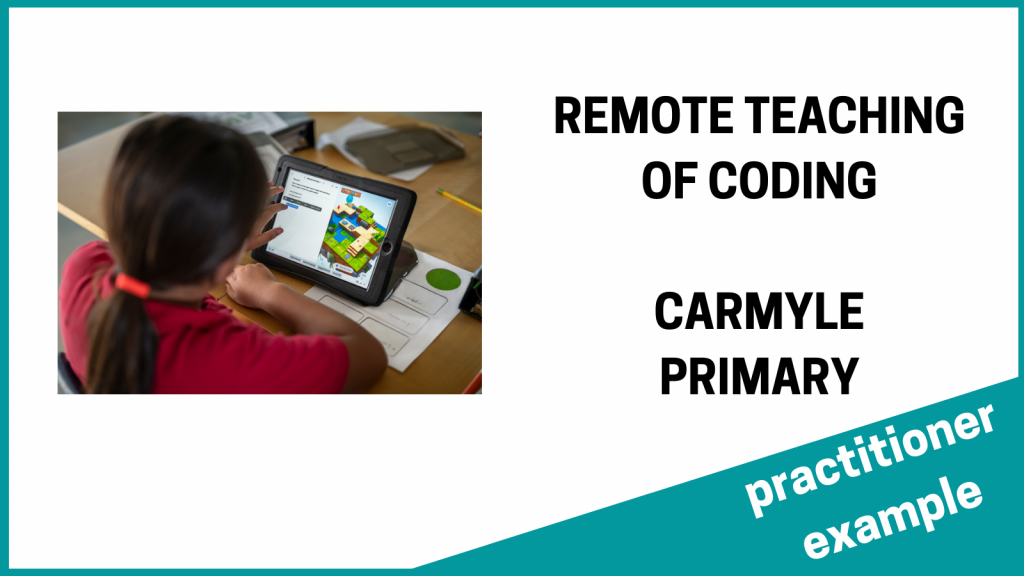Laura Di Pasquale (@LauraKeeney01) was previously acting principal teacher at Carmyle Primary School and Nursery Class in Glasgow City.
She has been delivering learning to staff to increase their confidence in delivering the learning to pupils:
“I have taken part in several computing science CPD sessions over the past two years and am now leading the Glasgow City (GCC) webinars for Swift Playgrounds on iPad. In the beginning, staff did not have a lot of confidence in teaching computing science, so I developed some further training to improve this.
I had already introduced the GCC trackers for Digital Literacy and Computing Science but staff were still developing their confidence with this too. So, I developed and delivered online training with staff in my school on computing science, coding and its place in the curriculum. I then created a staff pack of three coding lessons for each year group P1-P7 for staff to use. Finally, I team-taught a lesson remotely (I was shielding at home whilst the rest of the school returned) with each class to build that teacher’s confidence.
Throughout this work I have been able to demonstrate how accessible coding can be, and how each teacher already has most of the skills required to teach a coding lesson in the classroom. Colleagues took my ready made lesson for their own class and taught this – feedback was excellent! Staff are now much more aware of how computing science can be taught offline and are now more engaged in developing computing science in the classroom; some have actively sought out further CPD (such as digilearn) to enhance their skills and knowledge.”
“The best part of all of this work has been the educational impact on the children! They were really engaged and could make the links between skills being taught in the classroom and those linked to the wider world. The learners were engaged in the tasks and really enjoyed follow-up tasks that used online activities such Scratch or Swift Playgrounds. Children were assessed using a lot of questions and watching how they engaged with the task and how well they could remember and use new technical vocabulary, such as commands and sequence.”


